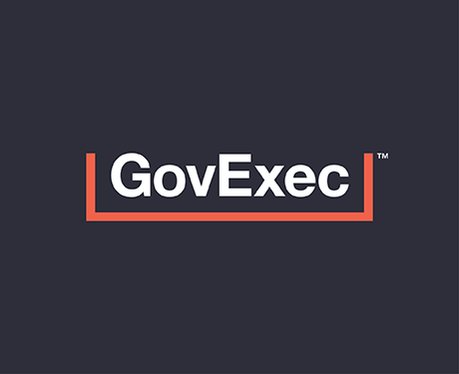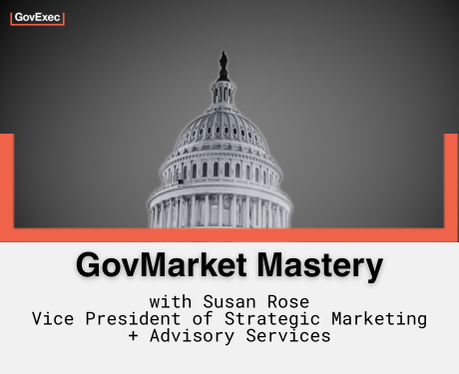The federal government is endlessly on-the-go. When the mission calls for new ways of thinking with acceleration, public sector officials have a wealth of information at their disposal, but limited time to receive the information they seek and the resources that can keep up.
For the government marketers that want to help, it can be challenging to navigate through the media labyrinth and ensure government audiences are receiving their message. Between the shuffle of newsletters, digital ads, and online articles, the government marketplace is incredibly noisy. In the race to reimagine what it means to successfully market to the public sector, one tool continues to push the boundaries of traditional media consumption and market strategy. The brainchild of broadcasting and spoken word, podcasts have rapidly descended on today’s media maze with an influential level of maturity and followership. Government listeners and marketers alike have already claimed their spots, and yet, ample space remains for new voices to enter, adapt, and thrive.
At GovExec, we feel the influence of podcasting too—seeing over one million downloads in a single year across our podcast network. As demand continues to surge, Government Business Council (GBC), GovExec’s independent research intelligence division, deployed a survey to a sample of federal civilian and defense employees to explore the role that podcasts play in how public sector leaders consume content today. Is podcasting truly the future of government marketing in this digital age? Consider a few key takeaways from the study.
A platform both in-demand and on-demand: Delivered in a simple yet effective format, the power of podcasting comes as no surprise. Since gaining popularity in the early 2000s, podcasts have grown exponentially and the numbers continue to rise. Why? From a listener’s perspective, portability, for one. Podcasts follow where they go and listeners can tune in when and where they want. Second, accessibility. Press play and the episode is automatically made available or synced to a device for future listening. Finally, they’re personal. There’s something about podcasts that feels uniquely human, with a real voice delivering content directly to a listener to create an individual connection. According to our GBC study, podcasts are budding with authority among government listeners too: 70% of public sector employees today listen to podcasts periodically or frequently.
From a government marketer’s perspective, this means a few things. The public sector operates in an ever-changing environment with complex needs. Its key stakeholders expect potential partners to understand their challenges and if seeking solutions, they’ll need to cultivate a sense of trust and transparency first. Podcasts allow for that trust to be earned through community-building. By giving a human voice and host to your brand, listeners can quickly feel connected to the stories, ideas, and expertise that you share. It’s through this sticky content that an active listenership can grow and how a captivated audience will come to understand your solutions, your overarching message, and what your brand ultimately represents. In other words, this auditory experience creates a “quasi-relationship,” or an organic rapport that keeps listeners hooked, informed, and most importantly - coming back. The digital nature of podcasts also makes them long-lasting. Unlike other traditional marketing tactics that can quickly become short-lived, outdated, or stale, podcasts are built with longevity in mind, from anytime listening to quick and cost-effective production.
By and large, podcasts are not just a buzzy platform to watch out for. In today’s media landscape, they serve as powerful tools to adopt in the government marketer’s toolkit, as part of a crafty marketing strategy.
Majority of listeners stay tuned beyond the scope of podcast content: Another contributing factor to the success of podcasts is how podcasts are uniquely positioned to serve as educational vehicles. With timely information delivered directly to those who voluntarily lend their ears, our GBC study finds that 59% of public sector employees listen to a GovExec podcast to learn something new, with one respondent noting that he/she listens for “professional development and industry insights.” This doesn’t end with just the primary content of the podcast itself. Our survey finds that 76% of public sector employees “always” or “sometimes” listen to the ads provided by content sponsors too, with 32% of them attempting to learn more about that particular sponsor.
Whether a government marketer wants to create a podcast from scratch or simply weave its key messaging within an episode of an existing podcast, the implication is clear: Government listeners are paying attention and are receptive to the content they consume through their chosen podcasts. Why? The answer lies in the ability of podcasts to let news, information, and insights flow instantaneously from sender to receiver. Especially when the information can critically inform the work priorities of the government stakeholders tuning in. This presents an opportunity for the savviest of government marketers to get creative with the message they want to share. Think less promotional and more practicable: strategically weaving and aligning marketing dispatches with the topics discussed in a podcast is one way marketers can eliminate the off-putting disruption that typically comes with other standard sponsorship strategies.
Knowing that government stakeholder audiences are not only willing to learn more but actively seeking it, podcasts arise as excellent platforms for driving education. They enable government marketers to thoughtfully map their insights, solutions, and expertise to challenges in government. Hands-free and in a central destination, too.
Quality over quantity when it comes to podcast production: So we know that podcasts are palmy with knowledge-sharing and that government leaders turn to podcasts to remain informed. How exactly would a marketer go about building a podcast from scratch? As a starting point, our GBC study finds that government employees do not necessarily believe in an “ideal length” for a podcast program. While the majority of respondents chose a length between 10-30 minutes, first-hand commentary provided deeper insights: “If it is well done, a topic of moderate interest could be 30 minutes. If poorly done, a topic of high interest may not hold interest beyond 15 minutes. If well done and of high interest, a podcast can be engaging for well over an hour.”
For government marketers, this means the length of the podcast does not matter to government listeners as much as the caliber of content does. In a crowded digital marketplace where content must work harder to stand out, the government marketer must not only develop but refine the content around the topics and ideas that government audiences care about. Whether the goal is to inform, educate, or simply entertain, podcasts serve as an innovative tool to create that open dialogue—through expertise, engaging storytelling, or educational information.
In other words, the objective is to focus less on the time or volume and invest efforts into fine-tuning content that communicates the message in a language that the government understands. Questions that can inform the government marketer’s strategy include: Do you understand the objectives of the government audience you’re trying to reach? What challenges do your solutions or capabilities solve? Why should the government buyer partner with your brand? Responding to these questions can come in an array of formats with podcasting: anecdotes, Q&A interviews, expert panels, testimonials, case studies—the list goes on. Creativity is limitless for the government marketer aiming to tell its brand story and leave a lasting impression on target stakeholders.
In essence, it is clear that podcasts are here to stay. It’s a mighty tool that can be swiftly adopted as an essential part of a larger and channelized government marketing strategy. From storytelling to idea-exchanging to problem-solving, podcasts empower government marketers to meet government audiences where they are; at home, in transit, and beyond. Government marketers, don’t be afraid to grab a microphone while you can.

